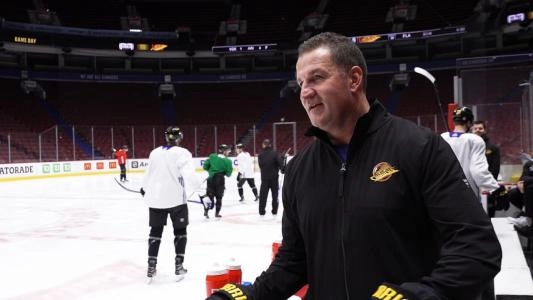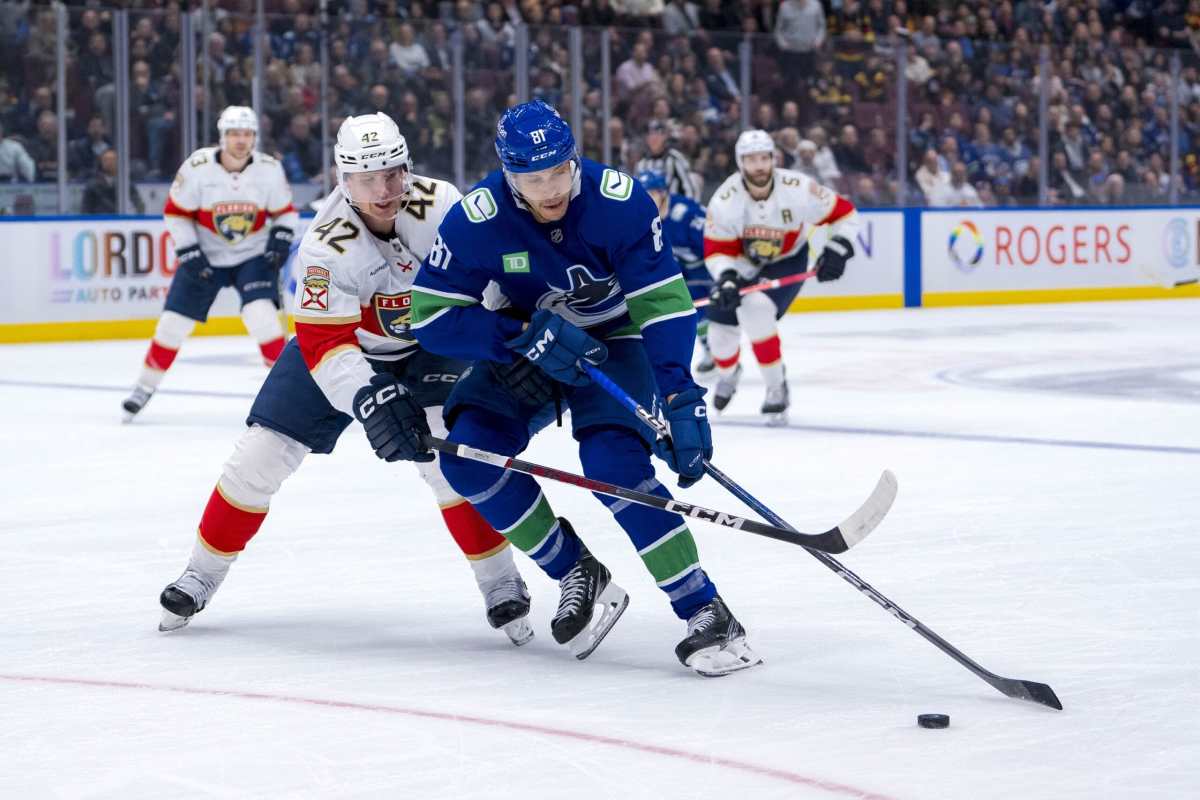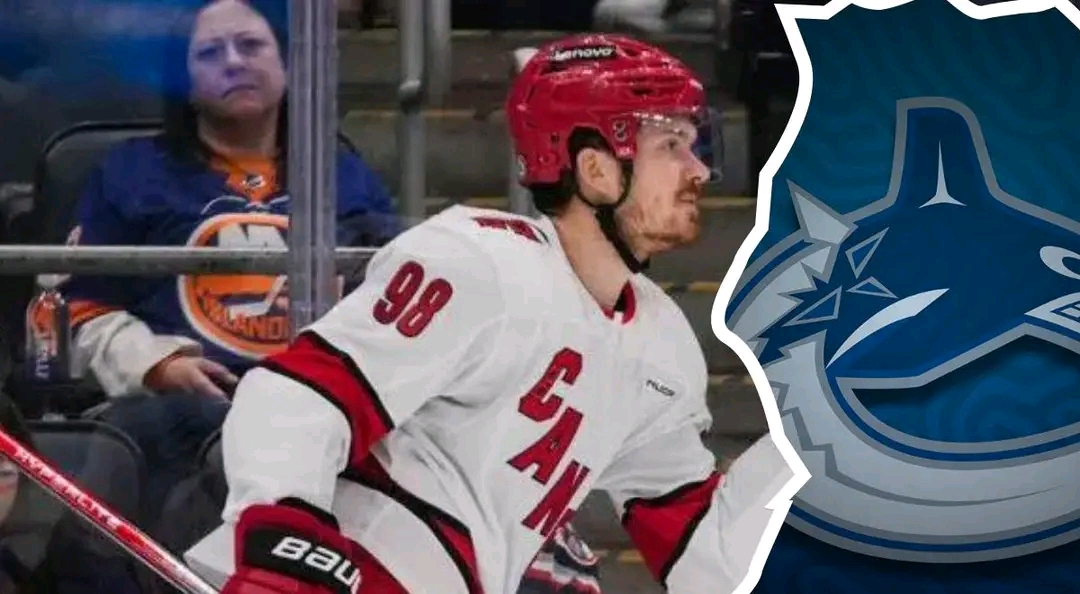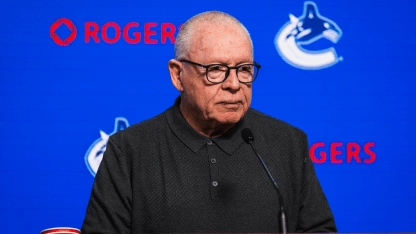Adam Foote Faces Immediate Scrutiny After Appointment as Canucks Head Coach
Just a day after being named the new head coach of the Vancouver Canucks, Adam Foote is already facing a storm of criticism from fans. The announcement, which followed weeks of speculation about who would take over the team after Rick Tocchet’s departure, hasn’t landed well with a large portion of the Canucks fanbase. While the organization hoped for a smooth transition by promoting from within, public reaction indicates anything but unity behind the decision.
Foote, who had been serving as an assistant coach under Tocchet since January 2023, was officially elevated to head coach on May 14, 2025. The move might have made sense internally—especially to Canucks General Manager Patrik Allvin, who emphasized Foote’s strong familiarity with the players, systems, and inner workings of the team—but that internal logic hasn’t shielded the decision from criticism. In fact, the hire has triggered a wave of negative reactions on social media, where fans haven’t held back.
Across platforms like Twitter and Instagram, fans have voiced disappointment, frustration, and even disbelief. “The absolute worst hire you could ever make. What an absolute joke,” one user posted, echoing the sentiment of many. Others suggested that Foote was not the right fit to steer the Canucks toward their long-term goals and predicted that his tenure might be short-lived.
This backlash is particularly striking considering Foote’s background in professional hockey, both on and off the ice. Before joining the Canucks as part of Tocchet’s staff, Foote served as a development coach for the Colorado Avalanche, where he worked for four years. He also briefly held the position of head coach for the WHL’s Kelowna Rockets, although his time there was widely considered underwhelming.
Nevertheless, his time as an assistant coach in Vancouver wasn’t without merit. Foote was largely credited with helping revamp the team’s defense, turning what was once a chaotic and undisciplined unit into one of the more organized and structured defensive corps in the league. His efforts did not go unnoticed by Tocchet, who praised Foote’s composed demeanor and insightful tactical approach—traits that likely made him an appealing candidate for the top job in the eyes of team executives.
From a management standpoint, Foote’s promotion provides continuity. Allvin emphasized this in his public comments, suggesting that Foote’s understanding of the team dynamics made him the logical choice. With the Canucks aiming to build on recent progress, hiring someone who already knows the team’s core might be a strategic way to maintain consistency rather than starting from scratch with an outsider.
Despite this rationale, it’s clear that many fans had other ideas. There had been widespread speculation that the Canucks would look outside the organization for their next head coach. Popular names floated by media and fans included Manny Malhotra, currently coaching in the AHL, and Marco Sturm, another candidate with minor-league experience and a respected hockey mind. Both of these individuals had strong followings and were viewed as fresh faces who could bring new ideas and energy into the locker room.
That expectation for a more exciting or bold hire has contributed significantly to the disappointment surrounding Foote’s promotion. To some, it feels like a conservative, uninspired move—particularly given the pressure the Canucks are under to become a playoff contender. The fanbase, which has waited years for a legitimate run at the Stanley Cup, seems to be craving a decisive shift in direction, not a continuation of the status quo.
Adding fuel to the criticism is Foote’s limited success in previous head coaching roles. His short stint with the Kelowna Rockets did little to inspire confidence, with the team struggling under his guidance and failing to meet expectations. Although junior hockey differs greatly from the NHL, fans have used that experience as further evidence that Foote may not be the right leader for a team trying to compete at the highest level.
Yet, it’s also important to acknowledge that many coaching decisions in the NHL are met with skepticism at first. Often, the real test lies in how a coach manages adversity, motivates players, and executes during key stretches of the season. Foote has yet to coach a game in his new role, and for all the doubt surrounding him, he could still prove to be the steadying force the Canucks need.
One point that may work in Foote’s favor is his reputation within the organization. Known for his calm and analytical presence, he has reportedly built strong relationships with players and staff. His experience as an NHL defenseman and coach gives him insight into the pressures of the league, and his recent contributions to Vancouver’s defensive improvements suggest he has a solid foundation on which to build.
Still, the challenge ahead is significant. Winning over fans will require more than just a good track record as an assistant. Foote will need to assert himself early, make smart lineup decisions, and show that he can lead with authority and vision. Vancouver is a passionate hockey market, and with that passion comes intense scrutiny. Every decision he makes—from line changes to post-game comments—will be under the microscope.
In many ways, Foote’s situation mirrors what many first-time NHL head coaches face: the pressure to prove that they can step up and deliver results at the highest level. The weight of expectations in Vancouver is massive, and it’s clear the fanbase is not going to be patient. Foote may have the support of management, but if early results don’t align with fans’ hopes, the criticism could intensify.
In summary, Adam Foote’s promotion to head coach of the Vancouver Canucks has stirred considerable debate. While the front office sees him as a logical and stabilizing choice, much of the fanbase views the move with skepticism. His ability to handle this early backlash and deliver results will determine whether he can silence the doubters—or prove them right. For now, Foote has the job—but winning over Vancouver remains a work in progress.



